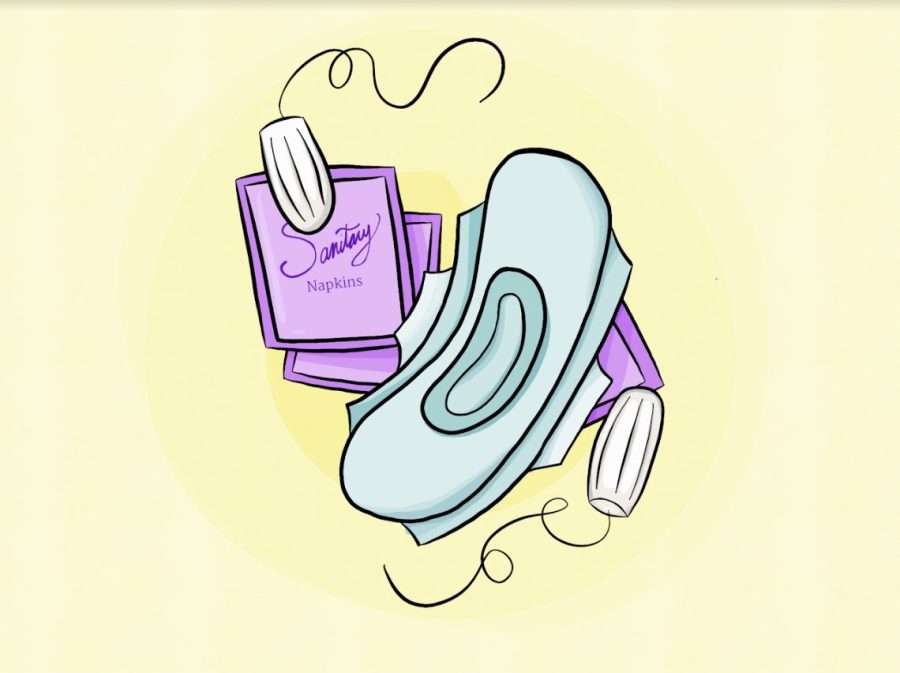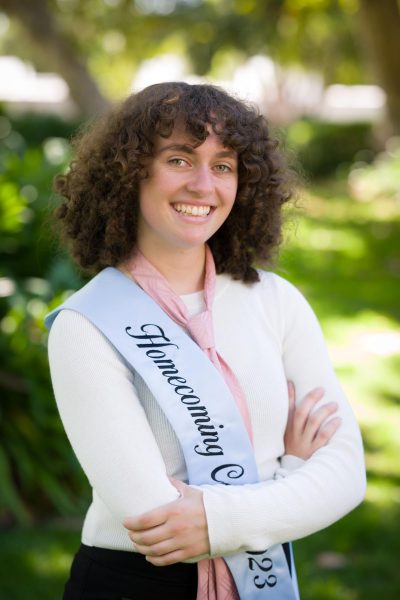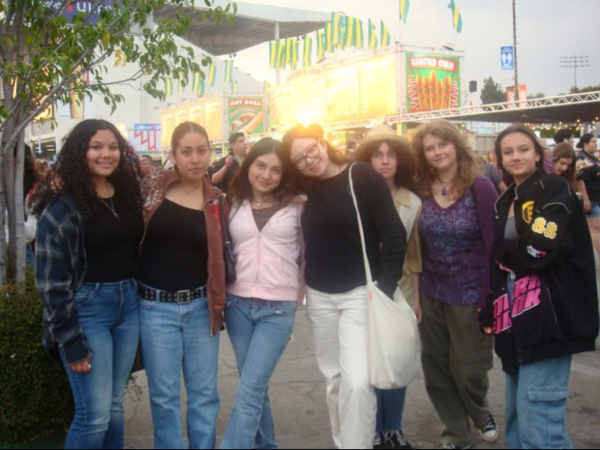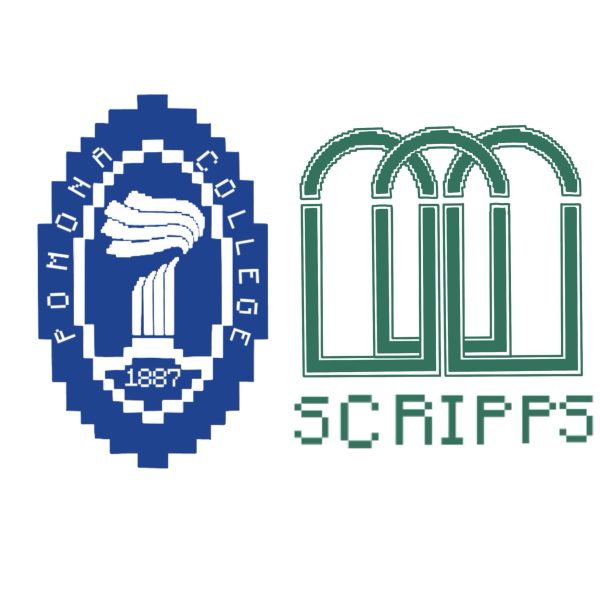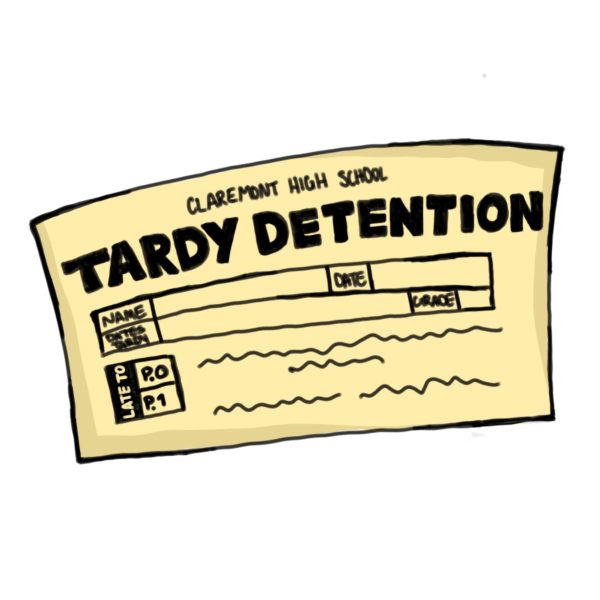Slowing Period Poverty: Dispensers Tamp Down Menstrual Concerns
The beginning of school always brings changes to the classrooms and curriculums of Claremont High, but this year brings a change to the restrooms too. The newly implemented dispensers in the restrooms of Claremont High School provide free menstrual products– tampons and menstrual pads– to those who would not otherwise have had access, in accordance with a recent bill.
A recent California law mandates public schools and universities to supply menstrual products, free of cost, in their restrooms by the start of this school year. While the products were implemented at CHS at the start of the 2022-23 school year, the bill that initiated this was signed in October of 2021 by Governor Gavin Newsom. This bill, called the Menstrual Equity Act, ensures that free period products are accessible in any public and charter school. The bill details that a supply should be available in all women’s restrooms and all-gender restrooms, and in at least one men’s restroom per school.
In compliance with the bill, Evogen dispensers have been placed in each of the women’s restrooms, the all-gender restroom located in the 800 quad, and one men’s restroom in the 700s quad, according to the head custodian Richard Martinez. The dispenser’s dual-loaded design allows it to hold up to 12 Tampax tampons and 8 #4 Maxithin menstrual pads at a time. No money is required, simply pushing a button to instantly dispense the period product. The button’s time-delay mechanism of 12 seconds allows the machine to reset and prepare the next product to be dispensed.
Seniors Sydney La, Maliha Siddiqi, and Crystal Skipworth are the creators of the Period Poverty Drive at CHS, a project in which they collected menstrual and hygiene products for the Pacific Lifeline shelter over the summer. They felt that the implementation of these dispensers was “a really good step forward”, as Siddiqi put it.
“Most people who go into that bathroom will have to use [the product dispenser] at some point,” Skipworth said. “Even if you do have your own stuff, it’s really good to have that backup, or if you need to take something home because you might not have resources at home or access to a store that can get [resources], it’s really good. Just obviously don’t waste them, save some for people that also need them.”
Menstruating without proper period products can cause discomfort, distraction, shame, and even health problems like urinary tract infections– factors which can detract from students’ quality of work at school or home. For students, periods can be a distraction and a worry that can hinder their classroom performance and cause stress and anxiety. The monthly menstrual process — specifically, a lack of available products — has been a cause of concern for many students; having an efficient way to access period products can alleviate such worries.
“A lot of menstruators don’t have access to [period products] and that’s a big problem because everyone deserves the right to menstrual hygiene,” La said. “We deserve to feel good, we deserve to feel clean, [and] we deserve to have access to menstrual products.”
Another effect of the implementation of the dispensers is that it challenges menstrual stigma. Menstruation has long been a taboo social topic, considered unclean, and causing millions of people across the globe to feel shame each month for a natural process that they cannot control. Although menstruation is a biological function, period products are not free, or even tax-free, creating equity issues for those who need pads and tampons but cannot afford them.
“Having that [the dispensers] is definitely starting a conversation,” La said. “Even in Gov [Government] class, it’s being brought up and I think that first people need to know about it [menstrual inequity] to actually understand and maybe do something about it .”
Menstrual equity has been an issue for decades, but the dispensers were implemented long after these issues first arose. Many students’ inability to afford period products has been a problem for generations, and the lack of any previous dispensers has just reinforced the cycle of disparity between the amount of free, available period products and the amount of students with a menstrual cycle. Despite this, Siddiqi believes that it is not too late to act.
“I feel like it’s always a good time to do this; there’s never a set time you can collect [period products], advocate for other women to collect these period products for others, [and] help other women, especially because there’s always people struggling,” Siddiqi said.
All three seniors also stressed the importance of including transgender and non-binary people, a sentiment that junior Rohit Kiran shared. Some students at CHS who go through menstruation are transgender or non-binary. Therefore, implementing dispensers in the all-gender restroom as well as a men’s restroom marks the start of a more inclusive environment that takes into consideration the menstrual cycle of all students at CHS, not just women.
“I think that it’s important that a boy’s restroom has a pad/tampon dispenser, especially in relevance to trans men,” Kiran said. “I think it’s very inclusive.”
The implementation of these dispensers marks both the start of a new school year and changing times. The dispensers can be considered a relief to all students who need products but cannot access them, providing a safe space for them to attend to their monthly menstrual cycle. They allow for a sense of inclusiveness that was not yet present at CHS, a subtle sign of support for non-binary and transgender students who experience menstruation. This new school year has brought a significant change to the restrooms of CHS, and its impact on the students will only grow more evident as the year progresses.
Hello there! Our goal is to provide relavent, engaging journalism for readers of all ages. Your donation will support the student journalists of the Wolfpacket at Claremont High School, and will allow us to purchase equipment, print our monthly issues, and enter in journalism competitions. We appreciate your consideration!

Rhea Sethi is a reporter on the Wolfpacket staff in her senior year at CHS. She joined the Wolfpacket last year due to her lifelong passion for reading...

Naisaa Khedia is a senior at CHS and the Head Sports Editor for the Wolfpacket. She is an AP/IB student. Outside of school, Khedia enjoys being in the...



